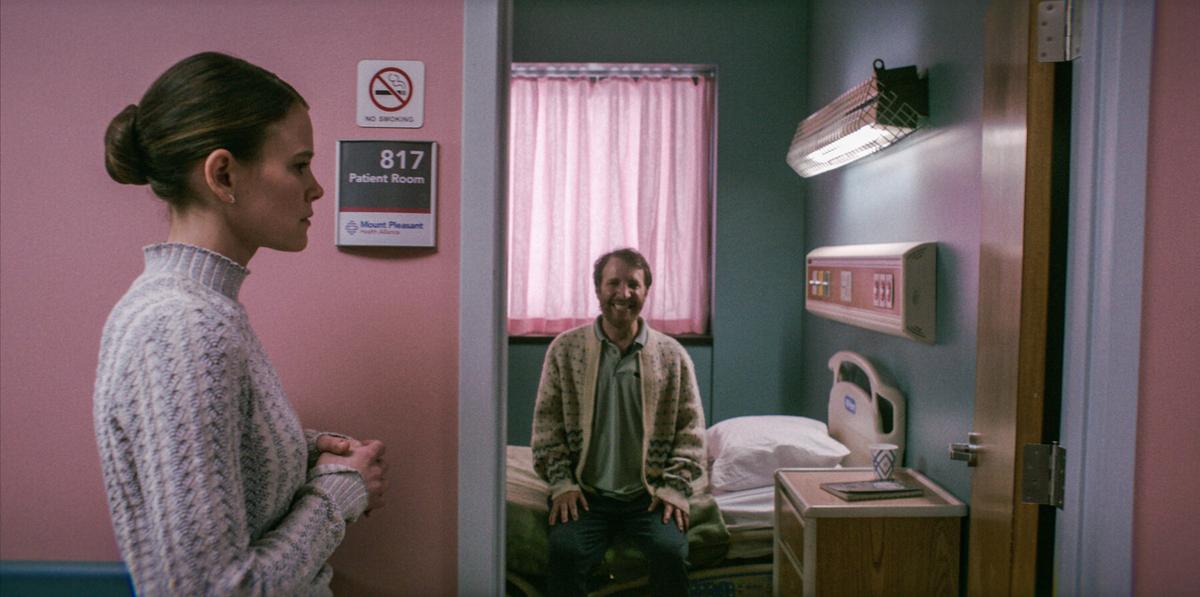Sosie Bacon as Rose in ‘Smile’
The world is a stage and we are all storytellers. We tell stories about ourselves to ourselves; stories that hold the power to either liberate us or trap us. Smile, directed by Parker Finn, chronicles a set stories like these.
Before going to the theatres, I’d recommend you take the trigger warnings surrounding suicide and post-traumatic stress disorder (PTSD) very seriously.
After witnessing a patient die by suicide at an emergency psychiatric hospital in a gruesome manner, Dr. Rose Cotter (Sosie Bacon) starts experiencing terrifying and bizarre occurrences, similar to the ones the patient had gone through right before her death. In her attempt at trying to investigate what seem like supernatural, unexplainable circumstances, she goes down a path that forces her to probe her sense of self, unresolved traumas, and guilt-ridden demons.
The concept of someone going through the most harrowing events, with a smile plastered on their face, makes for a great metaphor on the lives of patients suffering from mental illness, which is often invisible to the outside world. Holding out till the very end of the movie is rewarding; the 15-minute odd climax sequence of Rose in her childhood house, confronting her demons is the right mix of body horror and supernatural.
Smile
Director: Parker Finn
Cast: Sosie Bacon, Kyle Dallner, Caitlin Stasey, Kal Penn
Runtime: 115 minutes
Storyline: After witnessing a bizarre incident at the hospital, an overwhelming terror begins taking over Dr. Rose Cotter’s life; now, she must confront her troubling past in order to survive and escape her horrifying new reality
Sosie Bacon is terrifying and pitiful in equal parts and helps strengthen the conviction of the movie in relaying a message on mental health. Kyle Dallner as the overbearing ex who refuses to respect boundaries deserves a special mention.
Of all the characters who attempt the dead-eyed creepy smile, Caitlin Stasey hits that nail on the head of the brief and succeeds in sending a chill down your spine (no wonder it is featured in most of the posters).
Smile’s messy treatment of mental illness and trauma throughout one hour fifty-five minutes seems to be intentional and is bound to leave you feeling uncomfortable. The theme of inheriting mental illness and walking down a path that you have lived dreading all your life is poignant.
But. The jump-scares (sigh). The liberal use of jump-scares takes away from the seriousness of the issue at hand, and feels like the creators are almost mocking Rose’s condition. The tone of the film is also reminiscent of the early 2000s horror movies; gory, campy, and logic-defying. While some horror movies’ demand to suspend logic works in their favour, it is not the case with Smile. By suspending logic, they only make the protagonist and her condition look look bad.
Still, despite some of its missteps, Smile is a brave attempt at confronting mental illness in a horror film and might make for a good movie to watch on a night out with your college buddies.
Smile is currently running in theatres







